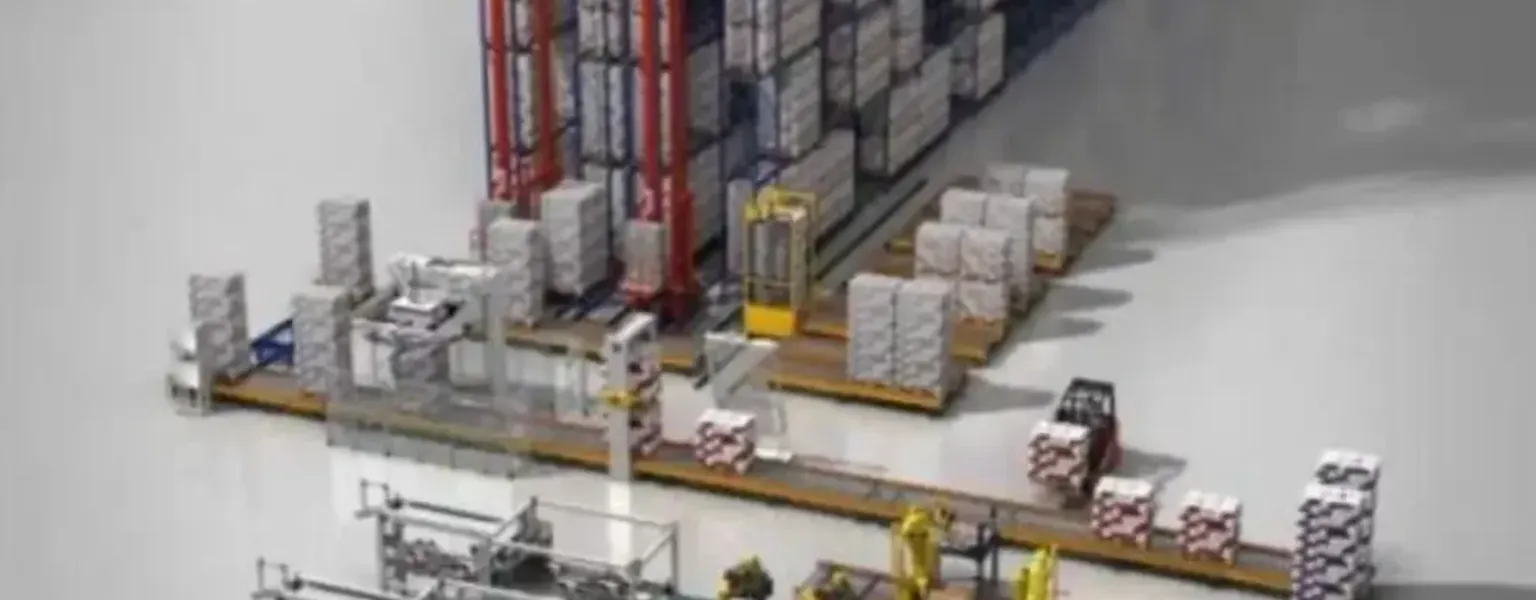PHS: Eco-efficiency in storage with Automated Retrieval Systems

Supplier News
The pursuit of efficiency and long-term viability in modern storage and logistics has resulted in significant progress. Automated Storage and Retrieval Systems (ASRS) stand out for their operational benefits and significant environmental influence. The idea of a “Green Warehouse,” in which ASRS plays a vital role, is transforming the supply chain sector by prioritising sustainability without compromising effectiveness.
What is ASRS?
Automated Storage and Retrieval Systems (ASRS) are computerised systems that autonomously handle the placement and retrieval of loads from predetermined storage locations. These systems find extensive application in manufacturing and distribution facilities, catering to a diverse range of materials such as pallets, boxes, and even individual items. The fundamental elements of an ASRS encompass storage and retrieval machines (SRMs), racks, conveyors, and an advanced software system that seamlessly coordinates the entire operation.
Energy efficiency
The energy efficiency of ASRS is a game-changer, setting these systems apart from conventional warehousing methods that depend on manual labour and forklifts. ASRS features electrically powered machinery fine-tuned for optimal energy use. These systems are designed to operate in controlled environments, dramatically reducing the need for intensive heating, cooling, and lighting, thereby mitigating the energy expenditure typically seen in traditional warehouses. The deliberate and calculated operations of ASRS machinery further diminish energy use, drawing only the necessary amount for each task.
Reducing waste
Another cornerstone of ASRS’s environmental benefits is its ability to minimise waste. By enhancing the utilisation of available storage space and curbing the requirement for supplementary packaging and extensive handling, ASRS markedly reduces waste output. The exactitude of these systems means fewer items are damaged during storage and retrieval, contributing to waste reduction. The compact storage capability of ASRS also permits a greater volume of goods to be stored within a smaller area, which translates to a reduced environmental toll from the construction and upkeep of larger storage buildings.
Through intelligent design and operational ingenuity, ASRS is establishing itself as a catalyst for sustainability in the storage and logistics arena. This technological leap is not only optimising the way materials are handled but also promoting a smaller ecological footprint for the storage industry. By maximising storage density and minimising energy and material waste, ASRS is proving to be a vital player in the evolution towards green logistics solutions. It’s a compelling narrative of how technology is leading the charge in the development of resource-efficient, environmentally responsible supply chain systems, reaffirming the vision of the “Green Warehouse” as an attainable and imperative standard in the modern world.
Greener supply chain
Automated Storage and Retrieval Systems (ASRS) are revolutionising the warehousing and logistics industry, steering it towards a more environmentally conscious direction. ASRS plays a pivotal role in streamlining storage and retrieval activities, leading to a significant decrease in the carbon footprint traditionally linked with these processes. In a time when transportation and logistics stand as notable contributors to global greenhouse gas emissions, the importance of such efficiency gains cannot be overstated.
Moreover, the advanced efficiency and expedited processes courtesy of ASRS enable companies to maintain lower inventory levels. This reduction has a cascading effect, particularly crucial for perishable goods sectors, by diminishing the potential for wastage.
In an innovative leap, ASRS units can be seamlessly blended with renewable energy solutions, like solar panels. This symbiotic relationship can potentially transform warehouses from only being carbon-neutral to becoming carbon-negative entities, thus actively benefiting the environment.
The rise of ASRS heralds a new chapter where operational efficiency meets ecological responsibility. The concept of the ‘Green Warehouse’ is now a present-day accomplishment, propelled by the extensive environmental advantages conferred by ASRS. With its commitment to lowering energy usage, curtailing waste, and fostering a more sustainable supply chain, ASRS is instrumental in the drive towards future-forward sustainable logistics. As technological advancements continue to surge, we can expect even more impressive progress in this area, cementing the role of ASRS as a fundamental component of eco-friendly warehousing and distribution operations.
This article was originally published by Phoenix Handling Solutions.
Related News
-
Supplier News
PHS: Layer palletisers for beverages
-
Supplier News
PHS: Why efficient packing is not just for holidays…
-
Supplier News
PHS: Strapping in for success…
-
Supplier News
PHS: Working smarter for commercial and industrial manufacturing efficiency
-
Supplier News
PHS: Packaged to perfection for industrial and commercial needs





